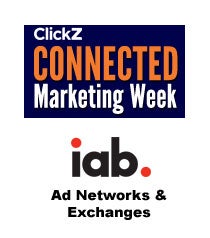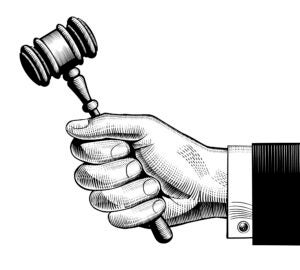 Today, during ClickZ’s Connected Marketing Week in San Francisco which brought together name-your-digital-pleasure marketers to discuss their respective marketing channel, ClickZ and the Internet Advertising Bureau (IAB) also co-sponsored an Ad Networks & Exchanges event.
Today, during ClickZ’s Connected Marketing Week in San Francisco which brought together name-your-digital-pleasure marketers to discuss their respective marketing channel, ClickZ and the Internet Advertising Bureau (IAB) also co-sponsored an Ad Networks & Exchanges event.
Editor’s note: It would seem the name of this type of IAB event may need to evolve. Demand-side platforms don’t want to be called ad networks. And, ad networks – to a certain degree – want to be known as demand-side platforms. Looking forward to the new name!
Just prior to the day-long event, the IAB released news (see it) that 16 IAB member ad network and exchange companies had become “the first to commit to comprehensive self-certification against the IAB ‘Networks & Exchanges Quality Assurance Guidelines,’ [which aims to] increase buyer control over the placement and context of advertising on ad networks and exchanges.”
In the third panel of the day, San Francisco-area media agencies provided their take on the fast-moving ad ecosystem and ad verification technologies, in particular.
Moderated by ValueClick Media’s Matthew Boyd, panelists included associate media director Kim Small of Universal McCann, senior media manager Pablito Padua of Signal to Noise (formerly Agency.com), associate media director Lindsay Wong of Razorfish and vp, digital strategy director Chris Unno of PHD.
Noting the new guidelines and their adoption by 16 member companies, panel members agreed they were heartened to see the step forward in adopting the brand safety measures. But Signal to Noise’s Padua added that he was disappointed that there weren’t additional networks on the initial list.
Is that the sound of an ad network losing some business?
Regarding the new IAB guidelines, Boyd guided the panel to consider what impact the new IAB guidelines would have on the buyer’s dealings with ad verification companies (i.e. DoubleVerify, AdSafe Media, AdXpose, Adometry, etc.) – and asked if the guidelines might replace the ad verifiers’ services.
Not so fast said UM’s Kim Small who suggested the guidelines would be helpful but, in regards to inventory delivery in the short term she said:
“I know for myself I would use ad verification partners against some of these networks [on the IAB ad verification list of 16 companies] to see if what they are claiming is actually true.”
PHD’s Chris Unno added his thoughts about IAB guidelines versus ad verification companies:
“I think that ad verification partners go to a much deeper level of specificity. I don’t think that [the new guidelines and ad verification companies] are in competition with each other, I think they are actually complimentary. I don’t think ad verification is going to go anytime soon. The terms of the I.O. (Insertion Order) is the agreement you have at the start of the campaign. Verification is figuring out what actually delivered.”
Lindsay Wong of Razorfish said:
“Ad verification partners make the client feel comfortable. I think the IAB guidelines help with planning and they make the client comfortable, too. But, it’s really that upfront piece (ad verification partners), where it really impacts the paying process.”
Signal to Noise’s Padua chimed in:
“There’s always going to be a need for ad verification. As the ecosytem grows – it’s like an arms race almost – where the bigger it gets, more and more spammers, impression gamers are going to be out there. We need these [ad verification] tools to defend against that risk for all of our clients (…)”
“There’s a small percentage (…) of these networks, as much as [they try], they’re not aware of the technology that might be behind [the inventory] exposing them to bad content such as nested iFrames. There’s some leakage out there and we need ad verification in that sense.”
The takeaway seems clear today: agencies want a third-party whose sole focus is to understand the efficacy of their buys on behalf of their clients. Down the road, ad verification services may possibly be delivered solely by “first parties” such as ad networks – but today that possibility sounded remote.
By John Ebbert












